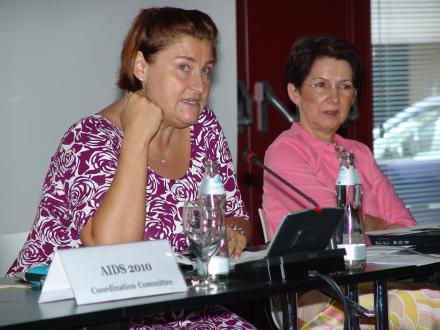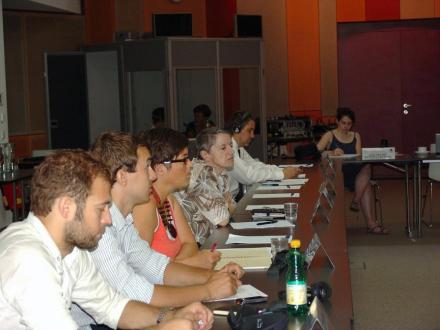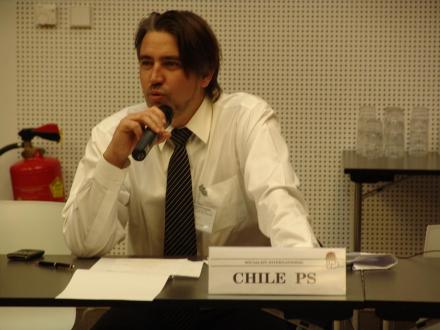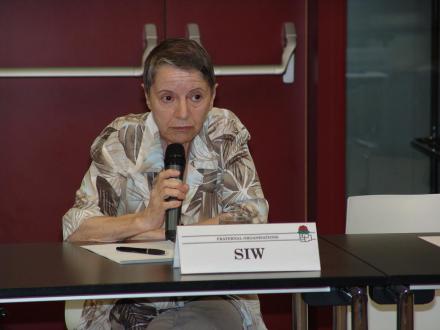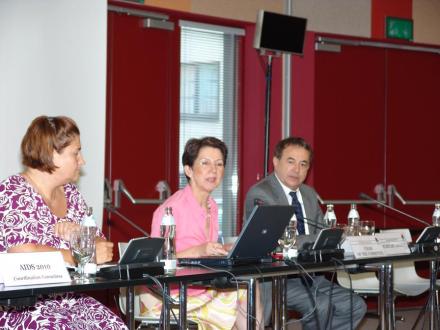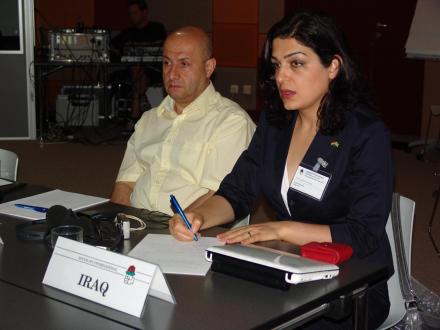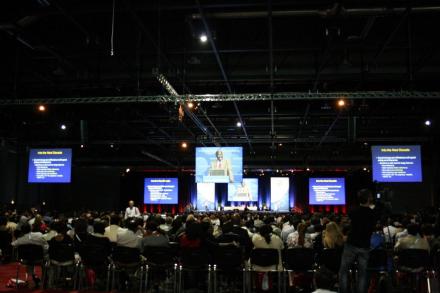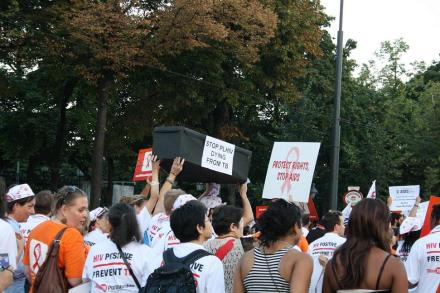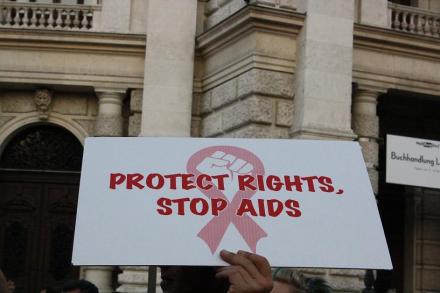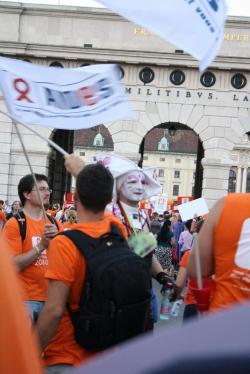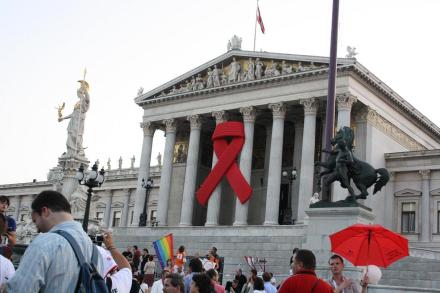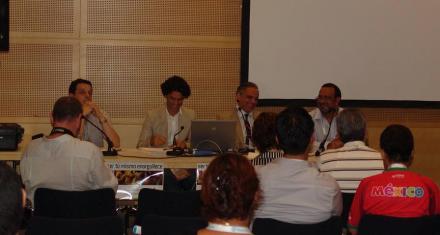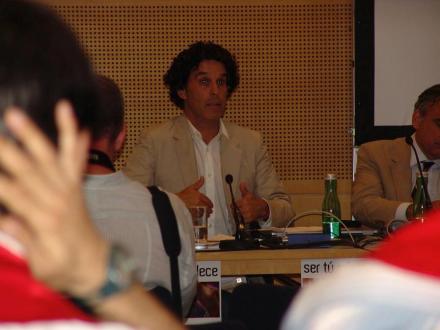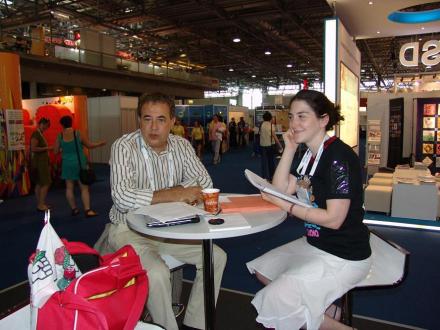XVIII Aids Conference
SI Side Event to the AIDS 2010 Conference, Vienna
22 July 2010
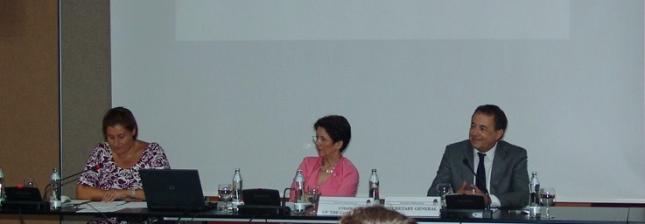
Latifa Perry
The Socialist International held a Side Event in the framework of the XVIII International AIDS Conference that took place in Vienna from 18-23 July, underlining the social democratic movement’s commitment in the struggle against HIV-AIDS and as an integral part of the search for a society of rights – inclusion, democracy, solidarity and gender equality, which socialist and labour parties stand for across the world.
The meeting opened with addresses by Barbara Prammer (SPÖ), Speaker of the Austrian Parliament and Chair of the SI Committee on Social Cohesion, Poverty and HIV/AIDS, and by the Secretary General of the Socialist International, Luis Ayala. Petra Bayr, member of the AIDS Conference Coordination Committee, contributed to the discussions as a keynote speaker.
The SI meeting learned of the scientific progress made on HIV-AIDS reported at the Conference bringing hope for so many around the world, and of the enormous challenges and obstacles that remain ahead. Among these are the diminishing funds required to keep up the momentum for scientific development and to advance access to treatment, prevention and education efforts. Other concerns were that AIDS-related issues are being lowered on national political agendas by those who seek cuts in social spending and a diminished role of public policies, the unfavourable climate in some countries created by conservatives on this issue, and in some cases the influence of religious institutions.
In the SI discussions, the crucial role of the social democratic policies to close the gap between rich and poor was underlined, as in the case of HIV-AIDS there is a clear link between poverty and the rise and the existing high levels of the disease.
Social democrats, it was pointed out, should be amongst the first to encourage and promote contributions to the Global Fund, as called for at the AIDS Conference in Vienna, to obtain the US$ 20 billion goal and support measures for its most effective use. Also ways to make cheaper medicines available to poorer countries were raised in the discussions.
It was considered important for social democrats in the struggle against AIDS to reassert the role of politics and a set of goals were considered in the discussions as key to the social democratic position on HIV-AIDS, including the following:
- Strengthen and protect the Human Rights of all those affected by HIV-AIDS with particular reference to the legal framework, its implementation, and the possibility of recourse.
- Ensuring and protecting the sexual and reproductive rights of all, especially those who are HIV positive.
- Ensure a balanced gender perspective and the empowerment of women in the design of all public policies relating to HIV-AIDS.
- End all forms of discrimination, stigmas and phobias related to sexual orientation.
- Defend and protect the labour rights of all those affected by HIV-AIDS.
- Protect the rights of children and young people, indigenous peoples, migrant workers, and other vulnerable groups.
- Ensure unrestricted universal access to and availability of health services as well as comprehensive treatment and care for all HIV-AIDS sufferers, regardless of how they got infected.
- Ensure with regard to reproductive health rights, that modern family planning services are available for all women and men in all continents, along with the dissemination of information on HIV-AIDS.
- Increase awareness and provide education in relation to HIV-AIDS to enable and facilitate adequate treatment without fear of stigmatisation or reprisal.
- Give greater impulse to preventive measures in regard to HIV-AIDS, equally targeting men and women.
In closing the discussion participants agreed that the HIV/AIDS issue should be included at the next meeting of the Committee on Social Cohesion, Poverty and HIV/AIDS and to propose that a future Council meeting of the International should feature a discussion on this theme.
The meeting opened with addresses by Barbara Prammer (SPÖ), Speaker of the Austrian Parliament and Chair of the SI Committee on Social Cohesion, Poverty and HIV/AIDS, and by the Secretary General of the Socialist International, Luis Ayala. Petra Bayr, member of the AIDS Conference Coordination Committee, contributed to the discussions as a keynote speaker.
The SI meeting learned of the scientific progress made on HIV-AIDS reported at the Conference bringing hope for so many around the world, and of the enormous challenges and obstacles that remain ahead. Among these are the diminishing funds required to keep up the momentum for scientific development and to advance access to treatment, prevention and education efforts. Other concerns were that AIDS-related issues are being lowered on national political agendas by those who seek cuts in social spending and a diminished role of public policies, the unfavourable climate in some countries created by conservatives on this issue, and in some cases the influence of religious institutions.
In the SI discussions, the crucial role of the social democratic policies to close the gap between rich and poor was underlined, as in the case of HIV-AIDS there is a clear link between poverty and the rise and the existing high levels of the disease.
Social democrats, it was pointed out, should be amongst the first to encourage and promote contributions to the Global Fund, as called for at the AIDS Conference in Vienna, to obtain the US$ 20 billion goal and support measures for its most effective use. Also ways to make cheaper medicines available to poorer countries were raised in the discussions.
It was considered important for social democrats in the struggle against AIDS to reassert the role of politics and a set of goals were considered in the discussions as key to the social democratic position on HIV-AIDS, including the following:
- Strengthen and protect the Human Rights of all those affected by HIV-AIDS with particular reference to the legal framework, its implementation, and the possibility of recourse.
- Ensuring and protecting the sexual and reproductive rights of all, especially those who are HIV positive.
- Ensure a balanced gender perspective and the empowerment of women in the design of all public policies relating to HIV-AIDS.
- End all forms of discrimination, stigmas and phobias related to sexual orientation.
- Defend and protect the labour rights of all those affected by HIV-AIDS.
- Protect the rights of children and young people, indigenous peoples, migrant workers, and other vulnerable groups.
- Ensure unrestricted universal access to and availability of health services as well as comprehensive treatment and care for all HIV-AIDS sufferers, regardless of how they got infected.
- Ensure with regard to reproductive health rights, that modern family planning services are available for all women and men in all continents, along with the dissemination of information on HIV-AIDS.
- Increase awareness and provide education in relation to HIV-AIDS to enable and facilitate adequate treatment without fear of stigmatisation or reprisal.
- Give greater impulse to preventive measures in regard to HIV-AIDS, equally targeting men and women.
In closing the discussion participants agreed that the HIV/AIDS issue should be included at the next meeting of the Committee on Social Cohesion, Poverty and HIV/AIDS and to propose that a future Council meeting of the International should feature a discussion on this theme.
Other activities
-
Strategies to combat poverty and achieving the MDGs – themes of discussion by the Committee in Accra
24 May 2010
-
Meeting of the SI Committee on Social Cohesion, Poverty and HIV/AIDS in Vienna
22 May 2009
If you are looking for an earlier meeting, please consult the LIBRARY section.










